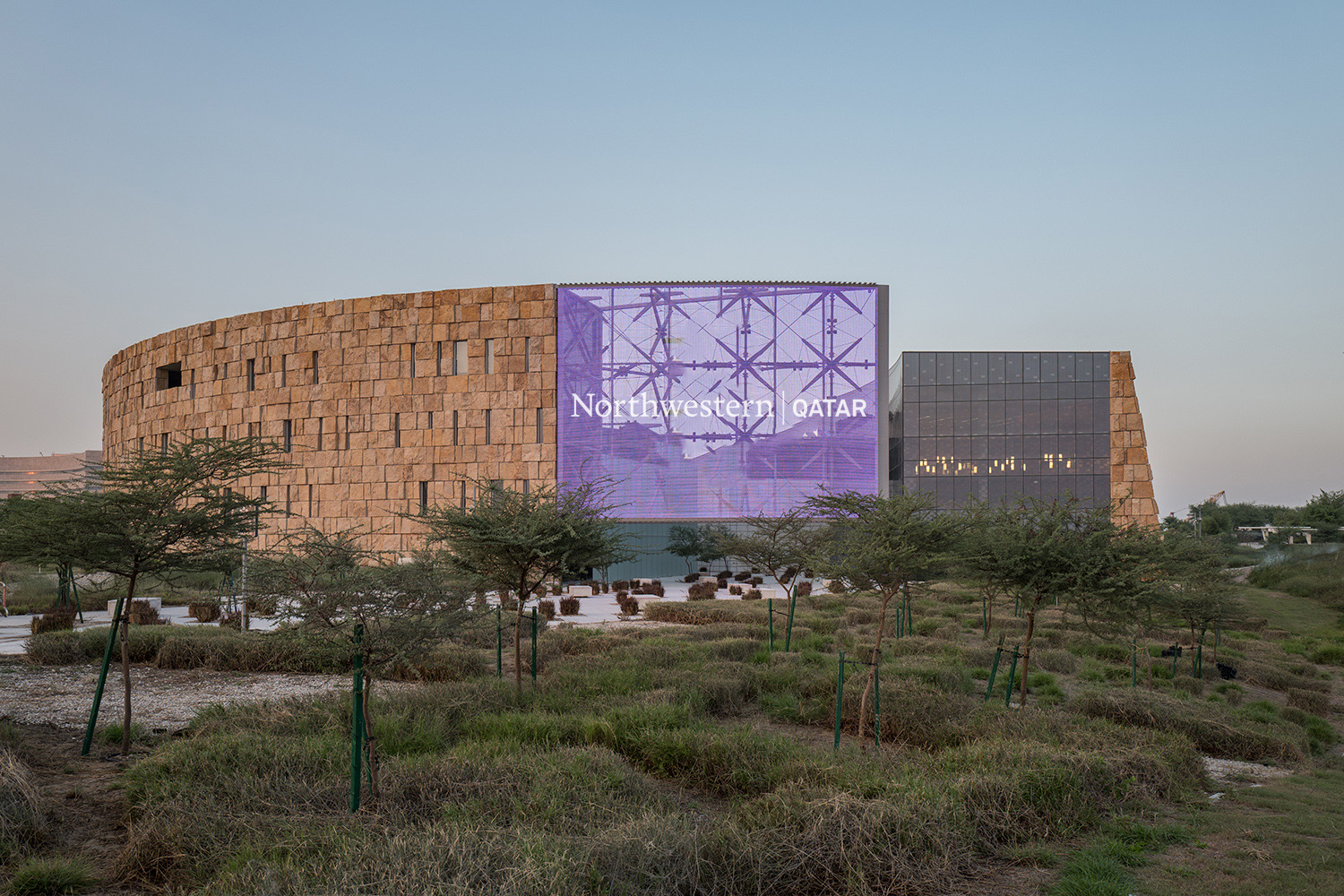Northwestern Qatar researchers to advance Middle East scholarship at 2025 MESA Annual Meeting
Eight Northwestern University in Qatar scholars lead a distinctive presence at the 2025 Middle East Studies Association (MESA) Annual Meeting, taking place November 22–25, 2025, in Washington, DC, presenting original research across panels, roundtables, and sessions on subjects ranging from digital media and security to historiography, colonial legacies, and gender representation.
Every year, the MESA conference brings together scholars, educators, and practitioners from around the world to discuss pressing questions in Middle East studies. This year, Northwestern Qatar scholars will contribute scholarship on both historical and contemporary issues, offering perspectives informed by rigorous research and engagement with the region.
In conjunction with MESA, the Institute for Advanced Study in the Global South (#IAS_NUQ) will also host the inaugural meeting of the Society for Humanistic Arab Media Studies (SHAMS) following its launch in Beirut last May. The meeting, organized by Northwestern Qatar Dean and CEO Marwan Kraidy and Marina Krikorian, assistant director at #IAS_NUQ, will feature a research roundtable with scholars of Arab media reflecting on humanistic methods in their work, alongside a planning session for the society’s next steps.
Dahlia El Zein, assistant professor in residence, will kick off faculty contributions, presenting her paper West African Colonial Soldiers and Race-Making in French Mandate Lebanon, on a panel entitled “The Age of World Wars.” El Zein will also serve as an organizer for the panel discussion, “Precarity, Academic Freedom, and the Profession in a Time of Genocide.”
On the second day, Professor Joe Khalil and Chafic Najem, a Global Postdoctoral Scholar at #IAS_NUQ, will take part in the panel, “Digital Media: Security, Privacy, Access, and Dysfunction.” Professor Khalil will share his paper, Reimagining Arab Audiences: Colonial Legacies, Market Forces, and Digital Transformations, while Najem will present a paper entitled Digital Media: Security, Privacy, Access, and Dysfunction. Similarly, Assistant Professor Yasemin Celikkol will present her research, Between Subversion and Accommodation: Kizil Goncalar, Islamophobia, and the Hybrid Representations of Islam in Turkish Dramas, as part of the panel “Gender and Religious Identity on Screen.”
Meanwhile, Sami Hermez, associate professor and director of the Liberal Arts Program, will organize and chair a roundtable, “After Liberation: Imagining the Future of the Levant,” that will feature his own work on the subject and the presentation of Sulafa Zidani, an #IAS_NUQ affiliate and assistant professor at Northwestern University. Hermez will also serve as a presenter or discussant on two other panels: “Precarity, Academic Freedom, and the Profession in a Time of Genocide” and “Trajectories and Afterlives of Revolution: Between Hope and Disappointment.”
On the last day of the conference, Zachary Wright, professor and associate dean for faculty affairs, will be part of the panel, “Reframing Islamic Historiography and Epistemologies: Chronologies and Intellectual Traditions, with a paper entitled Secrets from the Sahara: Shaykh Ma’ ‘Aynayn and the Scholars of Morocco.
In addition to faculty contributions, the Institute will also host a booth at the MESA Book Exhibit throughout the three-day conference, showcasing #IAS_NUQ_Press publications and sharing information about upcoming fellowship and research opportunities.
Northwestern Qatar’s presence at MESA will also extend to the MESA FilmFest, where alum Sashreek Gang’s film DHARAMSHALA: The Little Lhasa, produced as part of his #IAS_NUQ Global Undergraduate Fellowship, has been selected for the festival’s 42nd edition. The MESA FilmFest allows registered participants to view selected films one week before and one week after the in-person conference.
“Our faculty bring distinctive and rigorous scholarship to the study of the Middle East, and MESA provides a global platform for sharing that work. These contributions are important not only because they reflect the depth and originality of our research, but also because they demonstrate the ways our scholars are contributing to broader conversations in the field. I am proud to see their work shaping the study of the Middle East at an international level”
This engagement at MESA represents yet another global forum where Northwestern Qatar is actively shaping scholarly conversations. By bringing nuanced research and original perspectives to an international audience, the University continues to demonstrate the impact and relevance of its community work on the region.
For more information about the conference and full program, click here.

